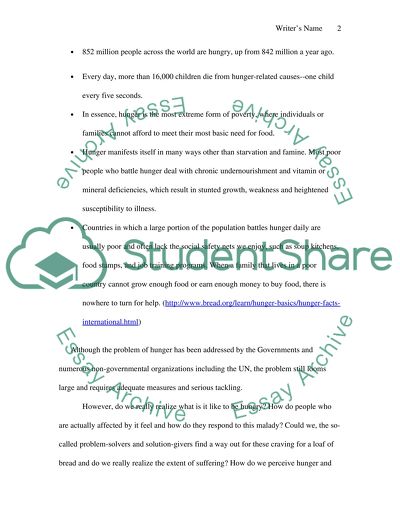Cite this document
(“Hunger, How is Our Perception of Hunger Different From That of Essay”, n.d.)
Hunger, How is Our Perception of Hunger Different From That of Essay. Retrieved from https://studentshare.org/people/1523890-hunger-how-is-our-perception-of-hunger-different-from-that-of-starving-children-and-how-we-have-become-immune-to-the-plight-of-others
Hunger, How is Our Perception of Hunger Different From That of Essay. Retrieved from https://studentshare.org/people/1523890-hunger-how-is-our-perception-of-hunger-different-from-that-of-starving-children-and-how-we-have-become-immune-to-the-plight-of-others
(Hunger, How Is Our Perception of Hunger Different From That of Essay)
Hunger, How Is Our Perception of Hunger Different From That of Essay. https://studentshare.org/people/1523890-hunger-how-is-our-perception-of-hunger-different-from-that-of-starving-children-and-how-we-have-become-immune-to-the-plight-of-others.
Hunger, How Is Our Perception of Hunger Different From That of Essay. https://studentshare.org/people/1523890-hunger-how-is-our-perception-of-hunger-different-from-that-of-starving-children-and-how-we-have-become-immune-to-the-plight-of-others.
“Hunger, How Is Our Perception of Hunger Different From That of Essay”, n.d. https://studentshare.org/people/1523890-hunger-how-is-our-perception-of-hunger-different-from-that-of-starving-children-and-how-we-have-become-immune-to-the-plight-of-others.


